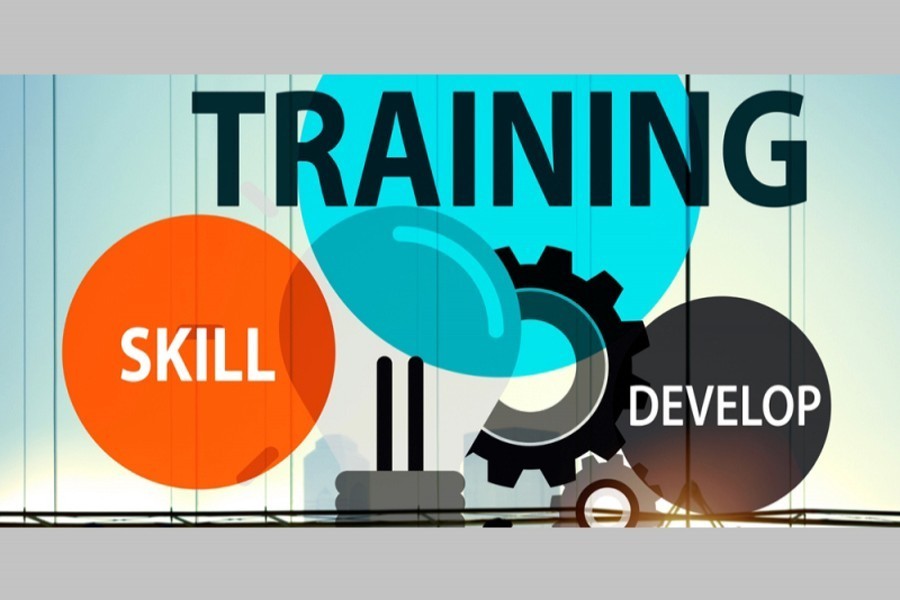
Published :
Updated :

In today's world of ever-shifting balance of power, global trade and economy are getting fragmented and, in some cases, protectionist and regionalised, while supply chains are facing disruptions. Amid these developments, the economies of countries so far bracketed as Least Developed Countries (LDCs) are confronting new realities. Bangladesh being one such economy and now poised to graduate to a developing one, faces, among others, the challenge of providing its growing number of youths--- about two millions joining the workforce every year --- with jobs. As the manufacturing sector of the economy is becoming the backbone of industry, the job-seeking youths are required to be trained in skills that can meet the manufacturing sector's demand. But as the existing model of education is failing to generate such skills, industries in the country are often compelled to meet their need by hiring skilled hands from abroad. This is unfortunate especially when, according to the Bangladesh Bureau of Statistics (BBS)' Labour Force Survey for 2024, the country had close to 900,000 unemployed graduate youths representing a rate of 13.5 per cent unemployment among tertiary-level graduates.
Worse still, failing to secure any job at home, many graduates along with other unemployed youths are trying their luck overseas, sometimes risking their lives. Obviously, this is creating an explosive situation in society that the policymakers are failing to comprehend, far less resolve. A glaring example is the recent experience of July uprising of 2024, where the disgruntled youths without any political leadership had overthrown the previous regime that turned violently oppressive. Clearly, the situation is portent of something more disruptive in the future unless urgent steps are taken to create enough job opportunities at home through overhauling the education system.
These issues, reportedly, came under the spotlight at a recent discussion, which was part of a broader event styled, 'Bay of Bengal Conversation 2025'organised by a local think tank, Centre for Governance Studies (CGS). At the discussion session business leaders and experts underscored the need for bringing in a qualitative change in the curricular design of Bangladesh's education system. Especially, the focus was laid on developing technical skills, rather than the prevailing generalist, certificate-based education where the openings have been narrowed down to a few government jobs under the Bangladesh Civil Service (BCS) and the banking sector. So, stress has been laid on developing a large pool of industrial engineers and technical specialists. Emerging digital technologies like Artificial Intelligence (AI) needs also to be duly accommodated in the educational curricula. All the curricular changes should start from the secondary level of education so that the youths can orient their career paths from an early stage of their educational lives.
Going abroad is yet another option where the destination is invariably the West. But with the global centre of gravity for economy and trade shifting eastward, especially to Asia, a change in the outlook of the job-seeking youth is desirable. Quite rightly, experts at the aforementioned discussion event, reportedly described Bangladesh as a critical 'battleground of ideas'. To adjust to the tectonic shifts taking place in every sphere of human endeavour, policymakers need to come out of their traditional 'elite-centred' mindset and embrace the unfolding vision of the future. That includes getting out of the legacy of the old-styled ideas of, for instance, GDP-centred growth paradigm. Since the concept of rule-based governance is also coming under challenge, a geopolitical vacuum has been created. So, these emerging realities demand that the policymakers need to gradually wean away from external advice and grow more expertise at home.


 For all latest news, follow The Financial Express Google News channel.
For all latest news, follow The Financial Express Google News channel.